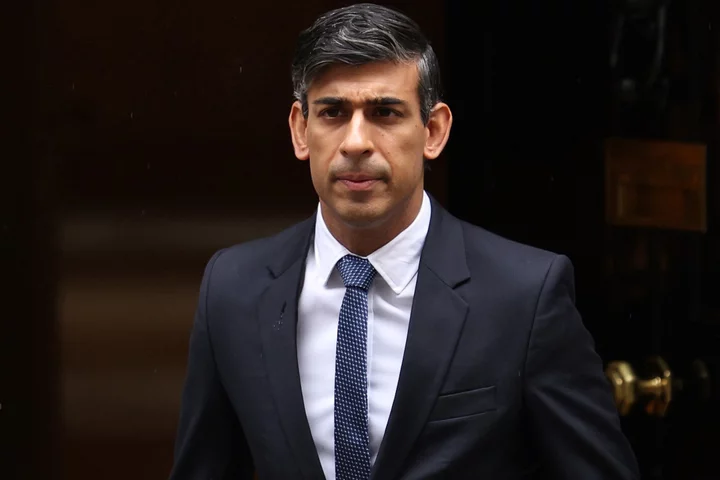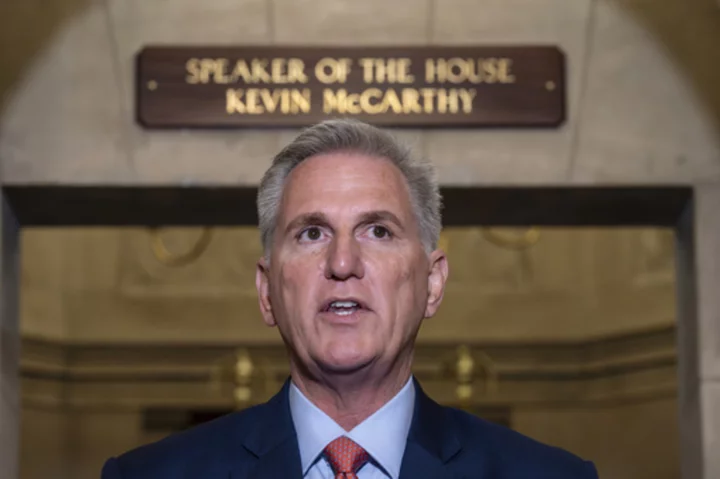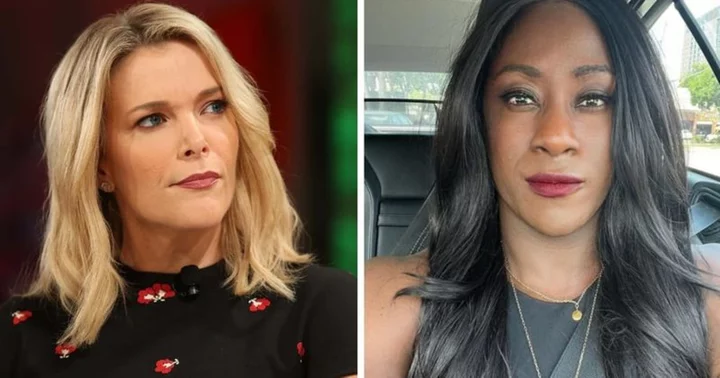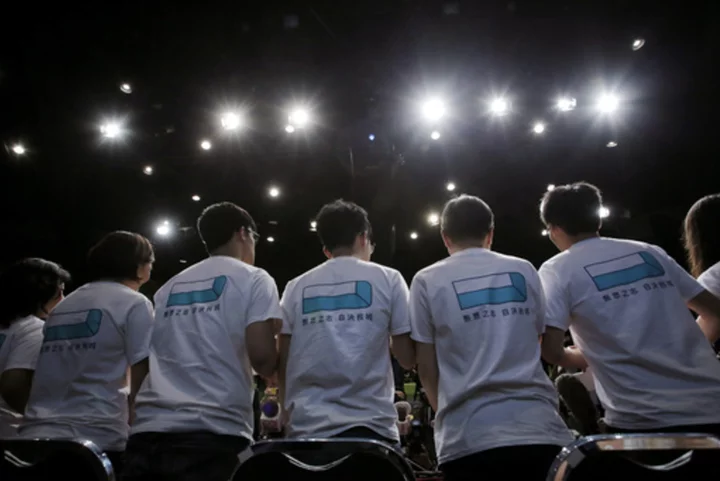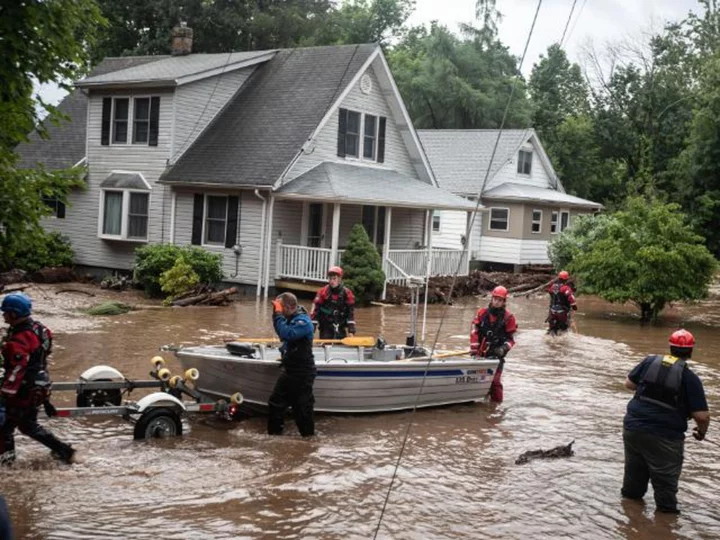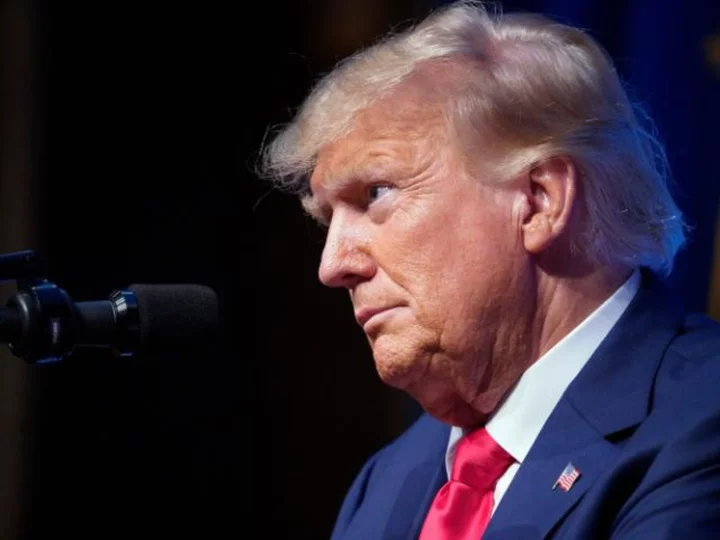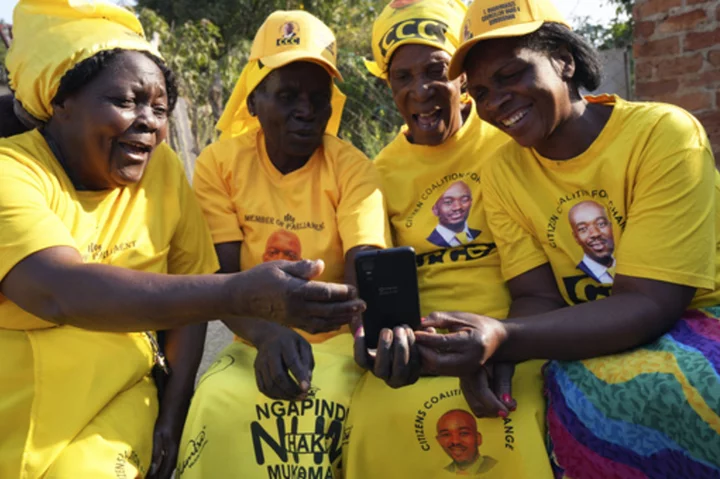Rishi Sunak pitches himself as a clean break from the chaotic leadership of his two immediate predecessors as prime minister for both the UK and his governing Conservative Party. Instead, he’s getting dragged back into the mire over his role in the country’s chaotic response to the coronavirus pandemic.
The chaos in government during the pandemic is being laid bare in graphic detail at the official Covid-19 inquiry this week, with slides showing the slurs and profanities hurled between officials over WhatsApp at the height of the crisis. Boris Johnson has faced some of the fiercest criticism, including testimony from his then communications director that “it was the wrong crisis for this prime minister’s skill set.”
Sunak has so far been spared the strongest vitriol, though the ramifications could yet be profound as more light is shed on how decisions were made in Downing Street. Sunak, who was Johnson’s Chancellor of the Exchequer, is expected to be called to testify himself in the coming weeks.
The danger is that voters associate the broken system with him, even as he tries to distance himself from past Tory governments ahead of a national vote expected in 2024. He’s likely to face renewed scrutiny over his “Eat Out to Help out” program in the summer of 2020, which subsidized meals in pubs and restaurants but was criticized by health experts for spreading the virus.
Based on testimony to the inquiry, Sunak was branded “Dr. Death the chancellor” by one government scientific adviser in September 2020. Imran Shafi, who was Johnson’s private secretary for public services, confirmed to the inquiry on Monday that Chief Medical Officer Chris Whitty privately dubbed Sunak’s program as “Eat Out to Help Out the Virus.”
Both that program and a separate policy of encouraging people back to workplaces in the pandemic “made absolutely no sense whatsoever,” Lee Cain, Johnson’s former director of communications, told the inquiry on Tuesday, because they were signaling to people prematurely that no further lockdowns would be necessary — contrary to scientific advice.
“We are indicating to people that Covid is over — go back out, get back to work, crowd yourself on to trains, go into restaurants and enjoy pizzas with friends and family — really build up that social mixing,” he said, without naming Sunak.
More than 231,000 deaths have been logged in Britain with Covid-19 on the certificate since the virus was first recorded there in early 2020. While the UK has been praised for a relatively fast vaccine rollout, it faced early problems on testing and tracing and the National Health Service was already lagging behind European peers on hospital beds, critical care and medical technology.
The UK inquiry takes place against a backdrop of public anger that Johnson and senior officials allowed drinks parties in Downing Street while the rest of the country was in lockdown. Both Johnson and Sunak received police fines for breaking pandemic rules at one event. Putting the pandemic back in the spotlight is unhelpful for Sunak as he tries to close the 20-point gap to Keir Starmer’s Labour Party in national opinion polls.
Sunak also faces questions over transparency. A series of WhatsApp messages including from him and from Johnson have been handed to the probe, although its lead counsel, Hugo Keith, said this month that “a lot were not retained.”
The Guardian newspaper reported that Sunak wrote in his witness statement that he does “not have access” to his WhatsApps from when he was chancellor because he changed his phone several times. The prime minister has declined to comment, saying he is “expansively” helping the inquiry.
Led by retired judge and crossbench peer Heather Hallett, the probe aims to scrutinize and learn lessons from all key aspects of the UK’s response to the pandemic and aims to produce a number of interim reports ahead of a final report in 2027. It is currently focused on “decision-making and political governance,” a section of evidence that could spell danger for Sunak.
“We’re potentially going to see some difficult testimony for the prime minister,” said Emma Norris, deputy director of the Institute for Government. “This is probably one of the most extensive public inquiries that have ever taken place in the UK.”
Sunak could also face scrutiny over comments he made during the Conservative Party leadership race in the summer of 2022, when he said scientists were given too much influence on decisions about lockdowns and that he was banned by Johnson’s office from discussing the “trade-off” in Covid restrictions on the economy and NHS. This was denied by Cain, who called it “Covid revisionism.”
Questions are also swirling about the extent to which businesses and individuals were able to profit from taxpayer-funded contracts for personal protective equipment during the pandemic because of their links to the Conservative Party, at a time when Sunak headed up the Treasury.
Still, the bigger issue may simply be voters associating Sunak with the chaos and culture under Johnson. Broadcasters carrying the hearings live have been forced to apologize for expletives read out from WhatsApp messages. It was an “overall dysfunctional system” Johnson’s former senior aide Dominic Cummings told the inquiry on Tuesday, and the former prime minister was described by “pretty much everyone” as an indecisive “trolley.”

